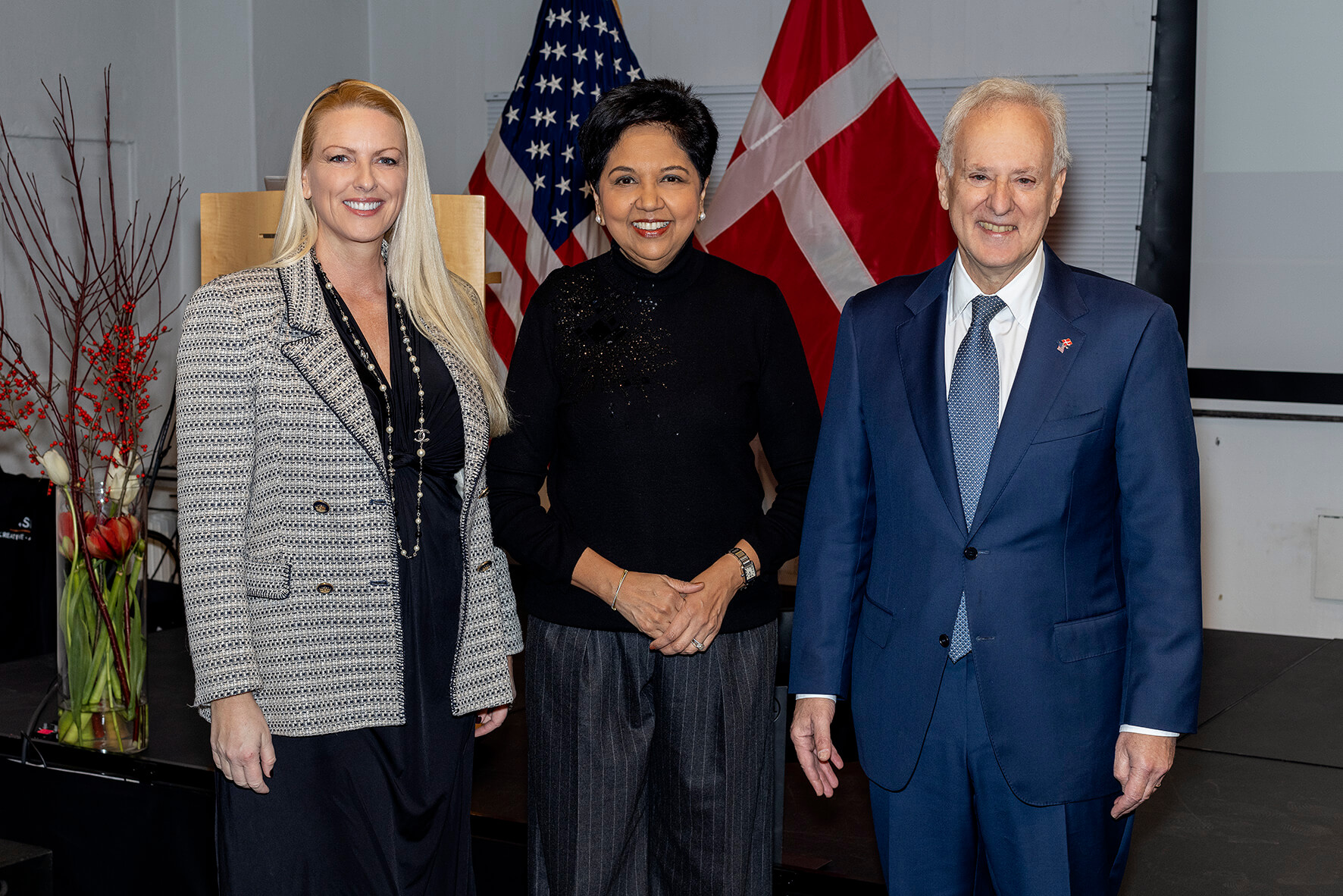
(L-R) Tine Arentsen Willumsen, CEO at Above & Beyond Group, Indra Nooyi, former CEO at PepsiCo, and Alan Leventhal, The Ambassador of the United States of America in Denmark
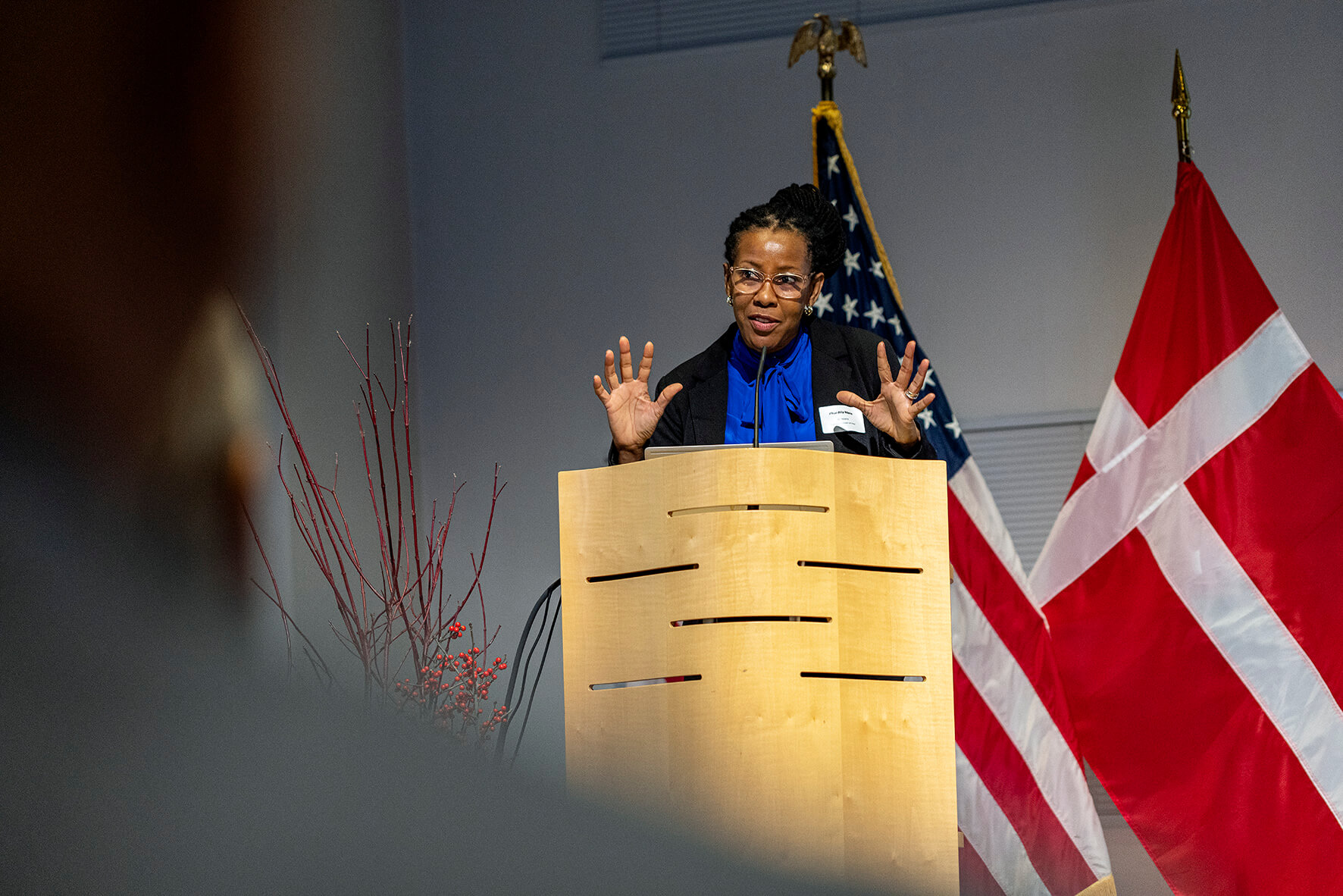
Dr. Phaedria Marie St.Hilaire, Co-Founder and President of Professional Women of Colour Network (ProWoc).
Intersectionality
About the Event
The Ambassador of the United States of America in Denmark, Alan Leventhal, and Tine Arentsen Willumsen, CEO at Above & Beyond Group co-hosted the Women in Leadership Forum in collaboration with the Ministry of Foreign Affairs of Denmark, Topsoe, A.P. Moller-Maersk, and Copenhagen Infrastructure Partners yesterday at Eigtveds Pakhus in Copenhagen. The event featured Indra Nooyi, the former CEO at PepsiCo, as keynote speaker.
The speakers and panelists were all carefully selected for the Women in Leadership Forum, as they represent different perspectives on how a strategic approach to gender balance can make a remarkable difference for well-being, innovation, and retention at a time where the battle for talent has intensified.
Here is the contribution from our very own ProWoc Co-founder and President, Phaedria Marie St.Hilaire
Thank you, Tine, for the kind invitation to speak. It is such a pleasure to be here.
Your Excellency, Ambassador Leventhal, Business leaders.
I will start by posing some questions to you this morning.
- When you look at me, what do you see?
- What do you think?
- Do you see me as a woman? A black person? A black woman?
- Do you see A leader? A foreigner? A wife?
- How do you instinctively react to me?
- Would you even speak to me or hold me in favourable regard as a starting point when you see me?
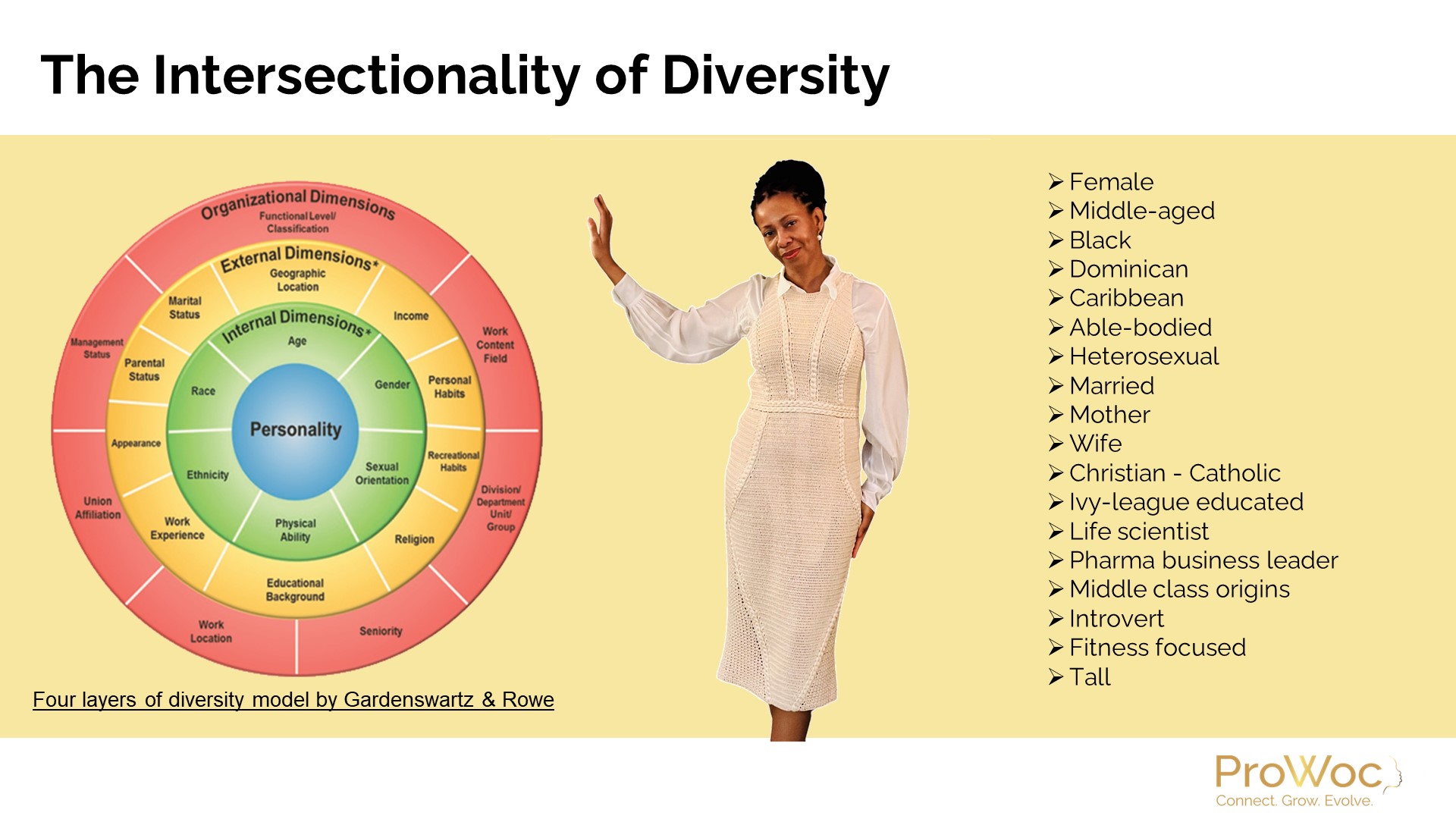
Well, I am more than just female, I am more than just black. I am also, Middle-aged, Dominican, Caribbean, Able-bodied, Heterosexual, Married, Wife, Mother, Christian – Catholic, Ivy-league educated, Life scientist, Pharma business leader, of Middle class origins, Introvert, fitness focused and Tall.…so Tall for a Caribbean female that my brothers would tease me that I would never get a man tall enough to marry – but I did …. In Denmark.
But Seriously ….., I have all these dimensions of diversity which make me unique, and multifaceted.
Being multifaceted can mean so many ways to discriminate against me or it can also mean so many opportunities to connect, build bridges, create dialog and truly see me.
Which option are you most inclined to choose?
You don’t have to answer that – not right now and not to me.
But this question and the ones I posed earlier are the kinds of questions we all should reflect on in our everyday dealings at work and outside of work.
It is through constant self-reflection and self-awareness that we can change our mindset and become part of making real and sustainable change.
Working through bias and making truly objective decisions is hard work.
I can recall the times when as a leader on the talent program selection committee and when participating in talent assessments at a company, although there was a clear list of criteria to be taken into consideration, in some cases the committee would “overrule” the conclusion based on the criteria and cite a so-called “X-factor” as the reason for selecting or deselecting someone. Often the selected group of talent comprised predominantly of attractive, young, Danish, extroverts. Are introverts not talent? What about older more experienced one? Or non-Danes?
Some of the examples listed on this slide are real-life experiences from some of our ProWoc members.
We have got to do better. It is not good for business or society when companies are not utilizing a group of highly skilled and qualified assets because they are foreigners or have a Muslim name or do not speak Danish well.
I would dare to say that there few roles that require fluency in Danish to be performed excellently.
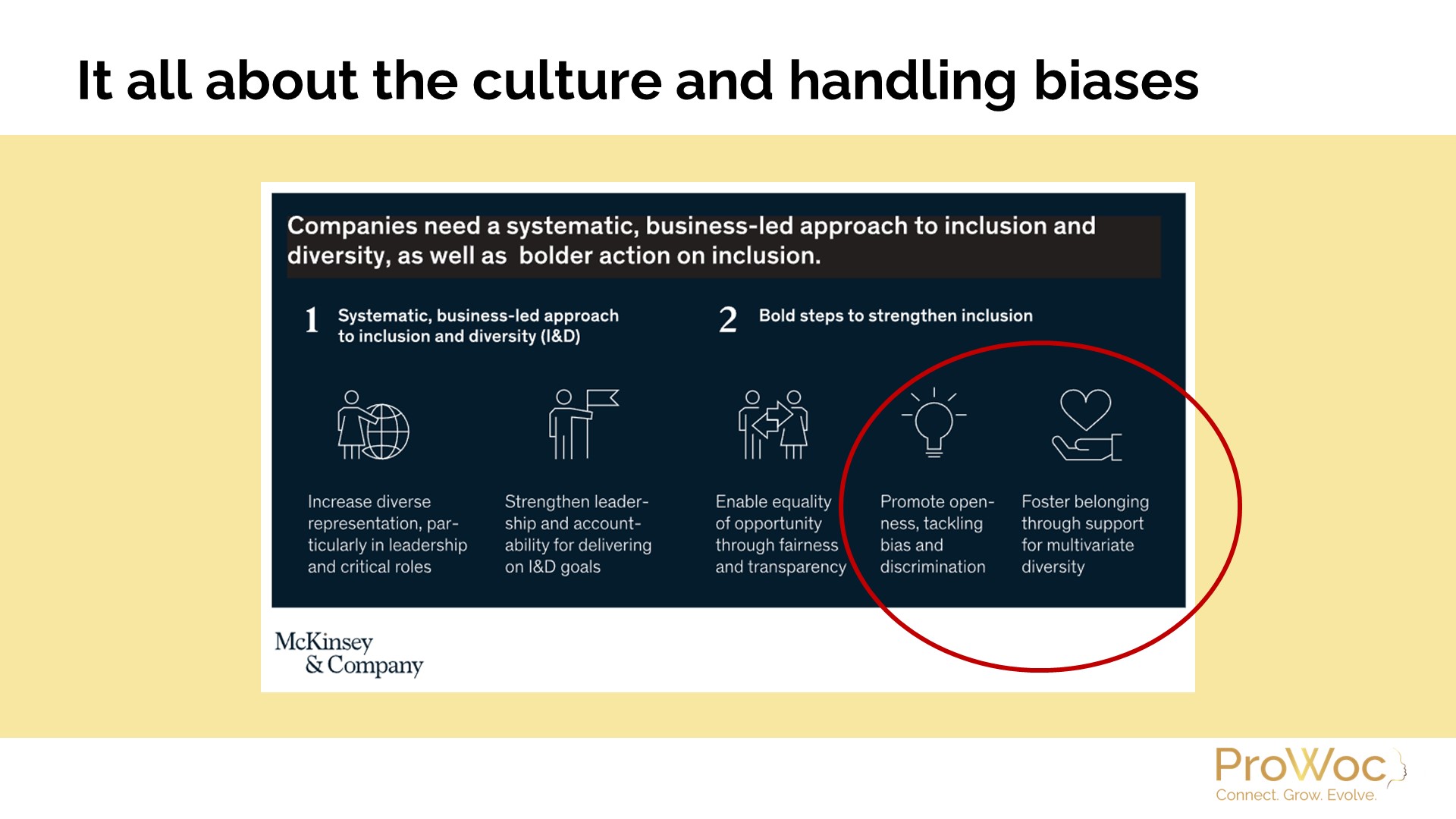
So what can you do?
You have heard so many great suggestions earlier today from Indra Nooyi and the other speakers and so much has been written about it.
For example a couple ago, McKinsey put out this approach that companies can take to move the needle on D&I – meaning what companies can do to increase their bottom line while acting in a morally responsible way. And I know that many of you are working to implement some of these initiatives.
However, in my opinion, the key initiatives are the ones that change the culture and the mindset of the company. And how does one do that? It is not easy because we are at war with our primal nature – our instinct to protect the flock, to keep the newcomers out of the herd as they may represent danger.
One could take a Lesson from the concept of LEAN and how it is deeply ingrained in many organizations. The benefits are constantly and clearly articulated, there are daily reminders and incessant messaging. Leaders are held accountable and in some cases Leadership compensation is tied to behavioural targets e.g. exhibiting LEAN behaviour. Could something similar not be done for DEIB?
Another key behaviour that can help move the DEIB needle is the practice of Allyship.
To make the workplace more inclusive and welcoming, allyship is needed as it is not the sole responsibility of the newcomer, the minority person to take steps to change the culture and be included.
I have contributed a chapter to Dr Poornima Luthra’s new book “The Art of active allyship” and the book is rich with examples of what can be concretely done to be an effective ally.
Two pieces of advice on how to be an active ally to me are as follows:
- Do not be silent when bias and unjust behaviours are observed. Have to courage to speak-up and question the behaviour.
- Be curious and ask me questions if you are unsure. I will not be offended if you are genuinely seeking to understand.
Thank you for your attention.
Blog
Phaedria Marie St. Hilaire featured in CPH Post ‘We Make Denmark Work’ series.
Career / InvestorPhaedria Marie St. Hilaire featured in CPH Post 'We Make Denmark Work'...
Announcement: ProWoc New Board Members
Announcement: New ProWoc Board Members As we move towards the future at ProWoc, we are excited to...
ProWoc is Recipient of the Blaze Inclusion Award in Denmark and the Nordics
We are so very thrilled that ProWoc is the winner of the Blaze Inclusion Award in Denmark and the...
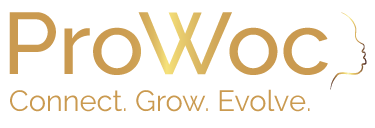
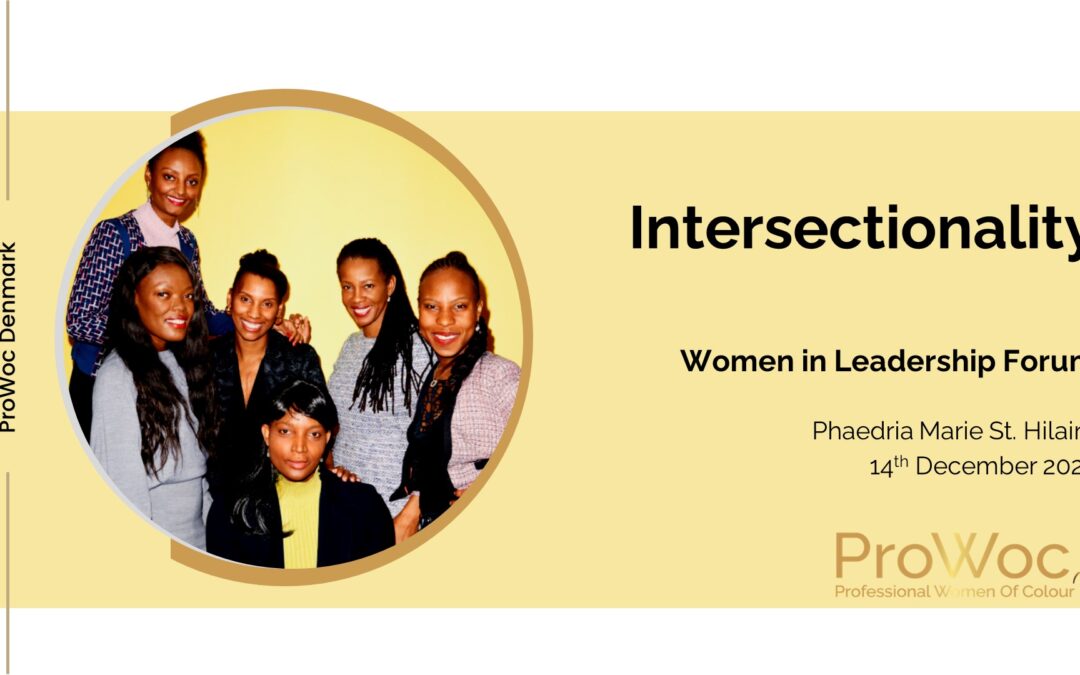
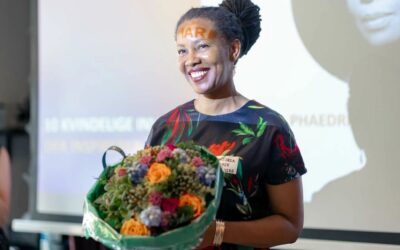
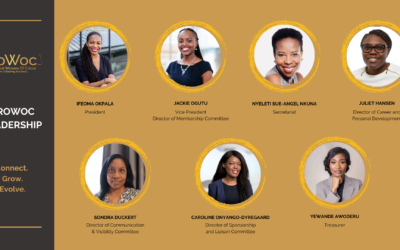
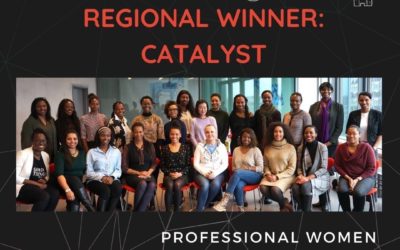
Hi, immensely inspired by Phaedria Marie St.Hilaire speech, I congratulate her and PROWOC for this amazing event in CPH. Being an Indian, Indra Nooyi has always been my personal favoutite. I wish I could be a part of it.
I could resonate every word Phaedria Marie said from the experience I have here in my job search. Being a woman of colour, a non-dane and not so young anymore, being introvert, I face a lot of bias in this society. Thanks for your pertinent words.
Cheers,
Ria